DEATH OF A DISCIPLINE
The Wellek Library Lectures in Critical Theory
PREVIOUSLY PUBLISHED WELLEK LIBRARY LECTURES
The Breaking of the Vessels
Harold Bloom
In the Tracks of Historical Materialism
Perry Anderson
Forms of Attention
Frank Kermode
Memoires for Paul de Man
Jacques Derrida
The Ethics of Reading
J. Hillis Miller
Peregrinations: Law, Form, Event
Jean-Franois Lyotard
Reopening of Closure: Organicism Against Itself
Murray Krieger
Musical Elaborations
Edward W. Said
Three Steps on the Ladder of Writing
Hlne Cixous
The Seeds of Time
Fredric Jameson
Refiguring Life: Metaphors of Twentieth-Century Biology
Evelyn Fox Keller
A Fateful Question of Culture
Geoffrey Hartman
The Range of Interpretation
Wolfgang Iser
Historys Disquiet: Modernity and Everyday Life
Harry Harootunian
Antigones Claim: Kinship Between Life and Death
Judith Butler
The Vital Illusion
Jean Baudrillard
Postcolonial Melancholia
Paul Gilroy
DEATH OF A DISCIPLINE
GAYATRI CHAKRAVORTY SPIVAK
COLUMBIA UNIVERSITY PRESS NEW YORK

Columbia University Press
Publishers Since 1893
New York Chichester, West Sussex
cup.columbia.edu
Copyright 2003 Columbia University Press
All rights reserved
E-ISBN 978-0-231-50323-5
Library of Congress Cataloging-in-Publication Data
Spivak, Gayatri Chakravorty.
Death of a discipline / Gayatri Chakravorty Spivak.
p. cm.(The Wellek Library lectures in critical theory)
Includes bibliographical references and index.
Contents: Crossing bordersCollectivitiesPlanetarity.
ISBN 0-231-12944-0 (cloth : alk. paper)0-231-12945-9 (pbk. : alk. paper)
1. Literature, Comparative. I. Title. II. Wellek Library lecture series at the University of California, Irvine.
PN865 .S68 2003
809dc21
2002031515
A Columbia University Press E-book.
CUP would be pleased to hear about your reading experience with this e-book at .
EDITORIAL NOTE
The Wellek Library Lectures in Critical Theory are given annually at the University of California, Irvine, under the auspices of the Critical Theory Institute. The following lectures were given in May 2000.
The Critical Theory Institute
Gabriele Schwab, Director
For Robi
Remembering harmony
CONTENTS
I am grateful to Jonathan Culler for having suggested that I choose this subject for my Wellek Library Lectures. It is a subject that has been close to my heart since I became Chair of Comparative Literature at the University of Iowa in 1975. That was an enlightened university, where a young chair was allowed to experiment with her odd ideas about building a discipline. My next chance to explore the topic came in 1986, at the University of Pittsburgh, with the founding of the Institute for Cultural Studies. The Center for Comparative Literature and Society at Columbia reflects every lesson learned at Iowa and Pittsburgh.
Between the presentation of the lectures in May 2000 and the final revision in May 2002, the discipline of comparative literature in the United States underwent a sea change. Publishing conglomerates have recognized a market for anthologies of world literature in translation. Academics with large advances are busy putting these together. Typically, the entire literature of China, say, is represented by a couple of chapters of The Dream of the Red Chamber and a few pages of poetry. Notes and introduction are provided by a scholar from the area commissioned for the purpose by the general editor, located in the United States. The market is international. Students in Taiwan or Nigeria will learn about the literatures of the world through English translations organized by the United States. Thus institutionalized, this global education market will need teachers. Presumably, the graduate discipline of comparative literature will train those teachers.
The book you are about to read is therefore out of joint with the times in a more serious way than the Wellek Library Lectures of May 2000 were. I have changed nothing of the urgency of my call for a new comparative literature. I hope the book will be read as the last gasp of a dying discipline.
A gasp is better than silence. One can write in the hope that there may be some in the academy who do not believe that the critical edge of the humanities should be appropriated and determined by the market. Perhaps not immediatelybut one of these days? Let the ghost dance.
Henry Staten has been a wonderful first reader, inspiring a thorough revision. Whatever faults remain are mine.
Gayatri Chakravorty Spivak
Columbia University
Since 1992, three years after the fall of the Berlin Wall, the discipline of comparative literature has been looking to renovate itself. This is presumably in response to the rising tide of multiculturalism and cultural studies. The first pages of Charles Bernheimers Comparative Literature in the Age of Multiculturalism tell a story that those with experience of national-level professional organizations at work can flesh out in the imagination into a version of the Quarrel of the Ancients and the Moderns:
In the summer of 1992 [the] president of the American Comparative Literature Association (ACLA), asked me to appoint and chair a committee charged to write a so-called Report on Standards for submission to the association. The bylaws of the ACLA mandated that such a report be prepared every ten years. The first report was submitted in 1965 by a committee chaired by my thesis director, Harry Levin; the second was submitted in 1975 by a committee chaired by Tom Greene. A third report was written ten years thereafter, but the chair of that committee was so dissatisfied with the document that he exercised a pocket veto and never submitted it. The first two reports are impressively strong articulations of a view of comparative literature which, in my view, no longer applies to actual practices in the field. A diverse group of top scholars from diverse institutions felt uneasy about being asked to establish standards and decided to give more importance to our ideas about the intellectual mission of the discipline than to spelling out requirements ( the report [was renamed] the Report on the State of the Discipline).
This is an account of the transformation of comparative literary studies. Comparative social studies, as represented by Area Studies, were undergoing their own transformation. This is well represented by a recent influential pamphlet by Toby Volkman, written while she was Program Officer at the Ford Foundation, from which I have taken my chapter title: Crossing Borders:
Recent developments have challenged some of the premises of area studies itself. The notion, for example, that the world can be divided into knowable, self-contained areas has come into question as more attention has been paid to movements between areas. Demographic shifts, diasporas, labor migrations, the movements of global capital and media, and processes of cultural circulation and hybridization have encouraged a more subtle and sensitive reading of areas identity and composition.
The rest of Volkmans pamphlet contains actual descriptions of institutional projects under six headings: Reconceptualization of Area; Borders and Diasporas; Border-Crossing Seminars and Workshops; Curricular Transformation and Integration; Collaborations with Nongovernmental Organizations, Activists, and the Media; and Rethinking Scientific Areas. There are a few examples of Ethnic Studies and Area Studies pulling together, but the only one that may touch traditional comparative literature is the project at Middlebury College, building on its already considerable resources of European language teaching. Indeed, although popular culture is an item often included, literature does not seem particularly important in this venture of, as Volkmans subtitle suggests, Revitalizing Area Studies.

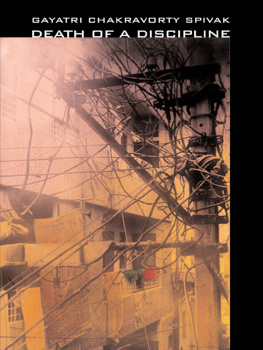

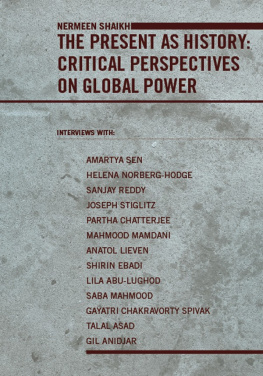
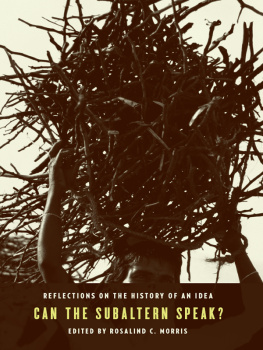

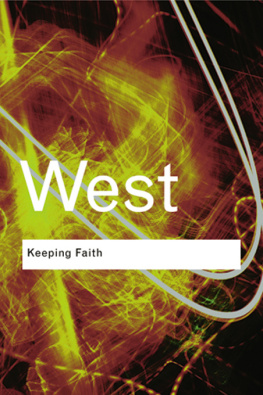
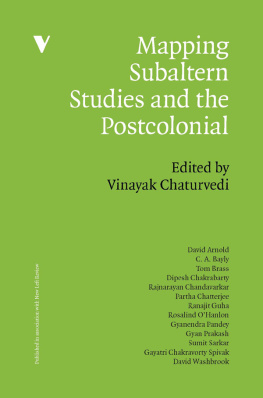

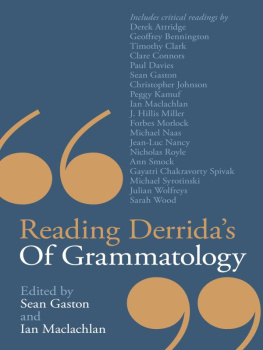
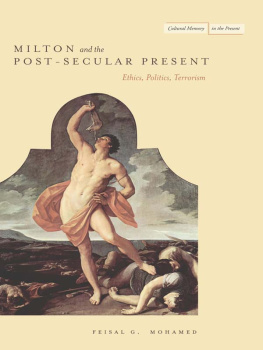
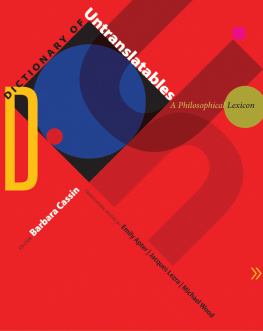
 Columbia University Press
Columbia University Press